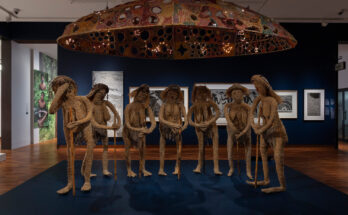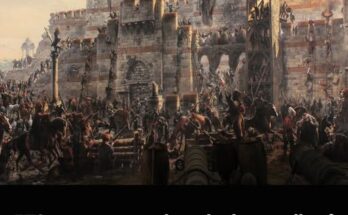At 96 years old, Noam Chomsky—one of the most influential thinkers of the 20th and 21st centuries—has been rendered silent, losing the capacity for speech and writing. For a man whose life was defined by the unrelenting power of words, this marks the end of an era. Noam Chomsky’s “throne of words”—the very platform from which he waged his lifelong battle against misinformation, oppression, and intellectual complacency—has now fallen quiet. The silence is not only personal; it echoes loudly across the global intellectual landscape. With it comes a sobering awareness that we are witnessing the twilight of a mind that dared to question, expose, and challenge the deepest assumptions of our world.
Chomsky’s legacy spans decades, disciplines, and continents. He revolutionized modern linguistics, challenged the foundations of global political discourse, and equipped generations of activists and scholars with the intellectual tools to resist conformity and speak truth to power. While his voice may now be stilled, the ideas he articulated remain as urgent and illuminating as ever.
The Linguist Who Rewrote the Rules
Chomsky’s journey began in the realm of language, where he fundamentally reshaped the study of linguistics. In 1957, with the publication of Syntactic Structures, Chomsky introduced the theory of transformational-generative grammar, positing that the human capacity for language is innate—a cognitive structure hardwired into the brain. This challenged prevailing behaviorist theories, which suggested that language was learned solely through environmental conditioning.
The implications of Chomsky’s linguistic theories went beyond academia. If language was innate, then every human possessed an equal and fundamental capability for thought, understanding, and communication. This egalitarian foundation of cognition hinted at something more profound: that intelligence and value are not determined by class, race, or geography but by our shared human nature. Chomsky’s theory of Universal Grammar was, in essence, a theory of universal dignity.
But he did not remain confined to linguistics. Instead, Chomsky became a public intellectual, leveraging his deep understanding of communication and cognitive systems to critique the structures of power that manipulate language for control.
A Relentless Critic of Power
Chomsky’s critique of American foreign policy, capitalism, and media manipulation earned him both admiration and ire. In books like Manufacturing Consent, co-authored with Edward S. Herman, he exposed how media corporations act not as neutral disseminators of information but as instruments of propaganda. Their role, Chomsky argued, is to manufacture public support for elite interests, not to inform or empower citizens.
His insights were rarely comforting but always clarifying. He peeled back the layers of ideological varnish covering imperial ventures, corporate exploitation, and political deceit. He reminded us that:
“Nations are not inherently impoverished; rather, it is the systems governing their resources that fail.”
This understanding reframed poverty not as a natural condition or a result of cultural failings, but as a consequence of systemic injustice—policies designed to extract wealth from the many to enrich the few. In Chomsky’s view, the task of the intellectual was not to serve power but to challenge it, to uncover the mechanisms by which suffering is justified and normalized.
Truth as a Personal Journey
Chomsky rejected the notion that truth is something handed down by authorities. He believed in intellectual self-responsibility:
“Truth is not a gift bestowed upon you; it is a personal discovery that demands your own effort.”
In an age where misinformation is rampant, and where truth is often drowned in a sea of curated half-facts and politicized narratives, Chomsky’s insistence on personal investigation and moral clarity is more relevant than ever. He taught that skepticism was not cynicism, but a duty. To think critically was not merely a skill—it was a moral obligation.
This ethos resonated with many, particularly young people seeking clarity in a confusing world. Chomsky became a symbol of principled resistance, an embodiment of what it meant to think freely in a time of conformity. His words were sharp, his delivery unadorned, yet they carried the weight of unflinching honesty.
The Psychology of Control
One of Chomsky’s most enduring insights was his analysis of how elites manufacture threats to justify their authority:
“A classic tactic of control involves fabricating an external threat, seemingly more menacing than the controllers themselves, who then position themselves as the populace’s protectors.”
This dynamic can be seen in everything from the Cold War to the War on Terror, from immigration policies to domestic surveillance. The aim is always the same: to keep people afraid and distracted, so they are less likely to notice the erosion of their rights or question the motives of those in power.
Chomsky’s critique was not only about politics—it was about psychology. He understood how fear could be weaponized, how narratives could be constructed to turn neighbors into enemies, and how systems of control often disguise themselves as systems of protection. His work was a call to vigilance—a reminder that democracy is not a gift but a struggle.
History as a Tool of Power
Chomsky also warned against the distortion of historical narratives:
“Distorting historical narratives to spotlight only ‘great men’ serves a purpose: it cultivates a sense of powerlessness in the masses, fostering the belief that change can only be initiated by exceptional individuals.”
This belief disempowers ordinary people, erasing the role of collective action in driving social progress. Chomsky emphasized that rights are never handed down—they are won through struggle:
“History’s starkest lesson reveals that rights are not granted benevolently; they are seized through struggle.”
By revealing how sanitized versions of history serve elite interests, Chomsky restored dignity to the laborer, the protester, the activist, the forgotten voices that shaped our world. He insisted that real change comes not from above, but from below—from the courage and determination of those who refuse to be passive.
Resisting Intellectual Conformity
For Chomsky, the true danger was not ignorance, but the illusion of knowledge. He warned against the temptation to surrender our intellectual autonomy:
“The world’s complexity and ambiguity can be unsettling. Resisting this confusion, however, leads to intellectual conformity, merely echoing the thoughts of others.”
This resistance to complexity is understandable—uncertainty can be uncomfortable—but Chomsky viewed it as a betrayal of our intellectual potential. He encouraged people to embrace uncertainty as a path to deeper understanding. To think critically is to be willing to say, “I don’t know,” and to seek answers independently, not to parrot slogans or hide behind ideological shields.
Suffering, Blame, and Manipulation
Perhaps one of Chomsky’s most chilling insights was his description of how those in power manipulate suffering:
“To dominate a population, instill the belief that their suffering is self-inflicted, and then present yourself as the solution to their woes.”
This tactic turns victims into the architects of their own misery in the public imagination. It justifies neglect, punishes the poor, and absolves the powerful. In the neoliberal worldview Chomsky often critiqued, success is equated with virtue, and failure with moral weakness. By reversing this narrative, Chomsky defended the humanity of the oppressed and called out the systems that exploit them.
A Crisis of Meaning in the West
In his later years, Chomsky turned increasingly toward cultural critique. He believed that the West’s obsession with superficial ideologies—materialism, consumerism, hyper-individualism—was leading to a profound alienation:
“The Western world will eventually lament its superficial ideologies that estrange individuals from their intrinsic nature. The pursuit of authentic faith and belief is paramount.”
This is a striking statement from a man often associated with rationalism and secularism. But Chomsky’s call was not for blind religious faith, but for a deeper, more meaningful engagement with existence. He saw that the modern world, in its relentless pursuit of profit and progress, had lost something essential—our connection to purpose, community, and inner truth.
A Final Silence
And now, the voice that once challenged presidents and inspired millions has been quieted. Chomsky can no longer speak, write, or engage with the world as he once did. It is a profound loss, not only for those who followed his work but for humanity at large. We have lost a critic who could not be bought, a thinker who would not be silenced—until now, by the body’s inevitable decline.
Yet in a deeper sense, Chomsky has not been silenced. His books remain. His interviews, lectures, and writings continue to circulate. His ideas live on, in classrooms and protests, in conversations and consciousness.
In fact, his silence now offers a final lesson. It reminds us that no voice lasts forever, and that the torch of truth must always be passed on. Chomsky’s life work is not a closed book; it is an invitation—a challenge—to the rest of us.
The Responsibility We Inherit
With Chomsky’s voice gone, the responsibility of intellectual resistance passes to us. His example teaches that it is not enough to admire truth; we must seek it. It is not enough to hope for justice; we must fight for it. His silence is not a void, but a space waiting to be filled by new voices—courageous, honest, and unafraid.
He showed us that the world is not fixed, but constructed—and therefore, reconstructible. He urged us to think independently, to question everything, and to stand firmly in the face of manipulation and fear.
If we truly wish to honor Noam Chomsky, we must become what he was: dissenters, seekers, guardians of reason in a world awash in deceit.


